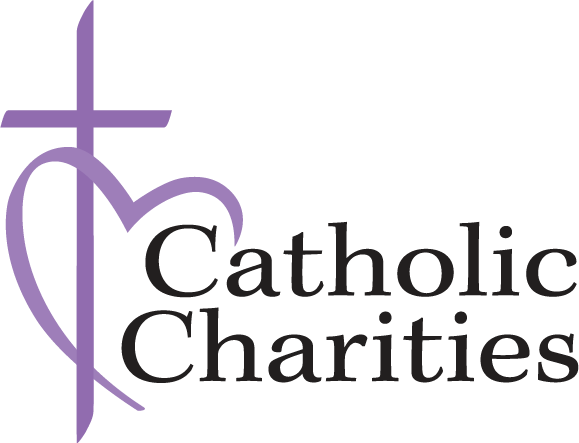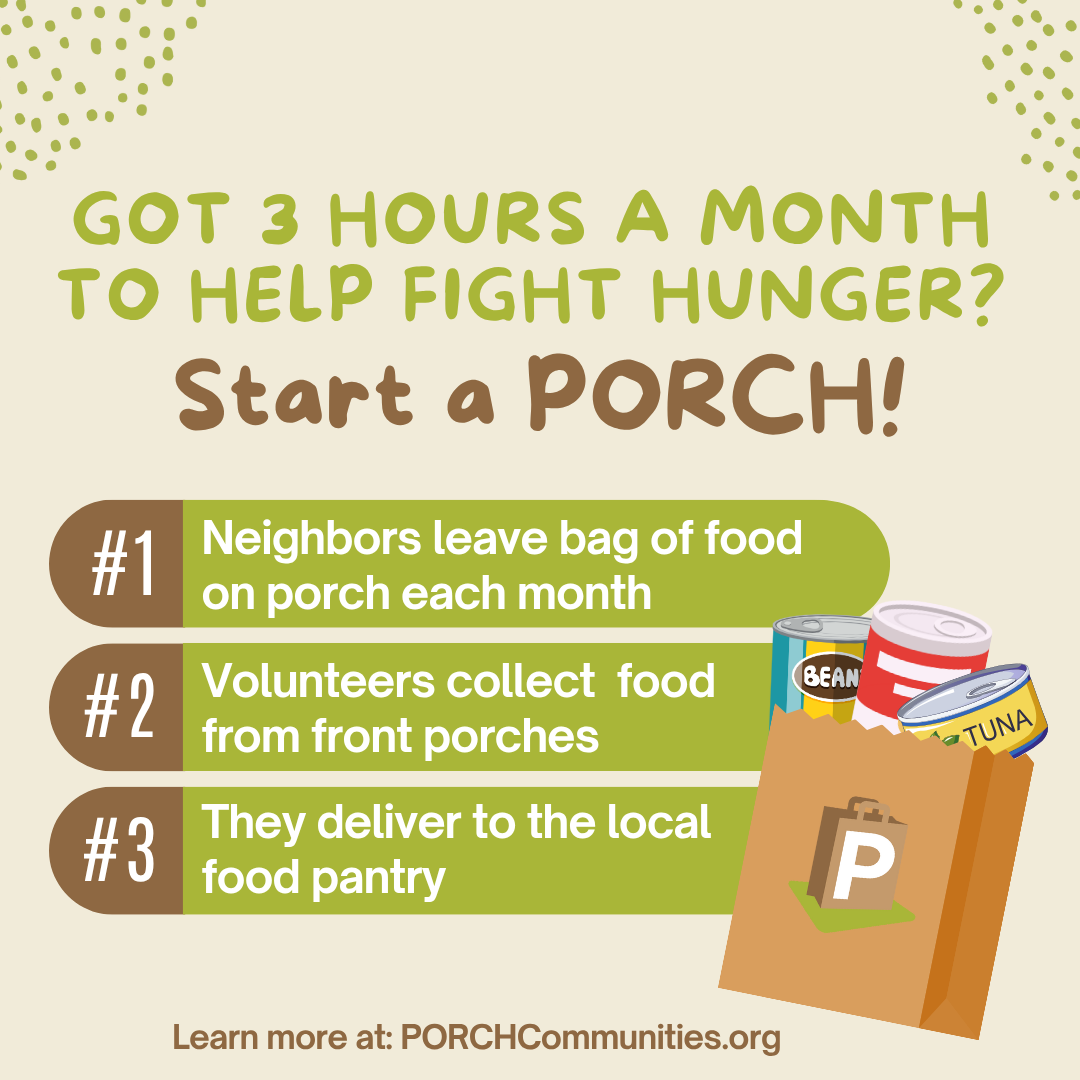Common Scams
July 30, 2024
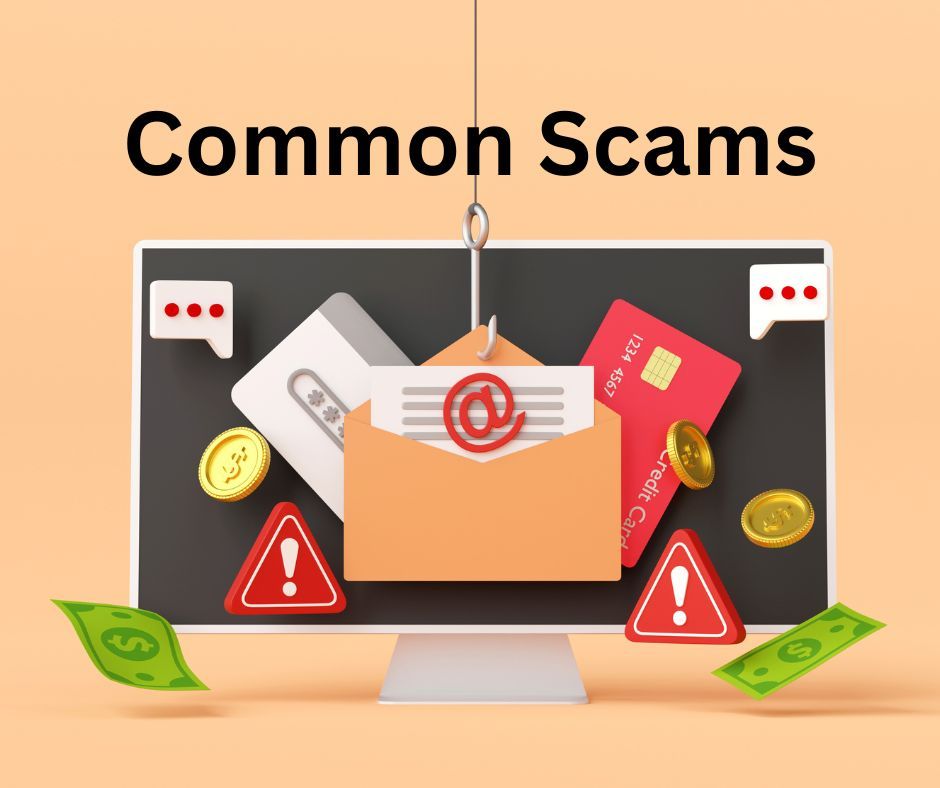
Romance. Grandparents. Sweepstakes. Gift Cards. What do all these things have in common? They are frequently used to scam people out of their hard-earned money.
Below you will find some examples of common or popular scams to be on the look out for so you can protect yourself and your money.
- Government impersonation: government impersonation scammers pretend to call you from a government agency, like the FBI, Social Security Administration or IRS. They say something bad will happen—you’ll go to jail, for example—if you don’t pay.
- Romance/confidence: Often posing as military or a trades person working overseas to avoid meeting face-to-face, these scammers develop fake online personas to gain the trust and affection of their victims before asking for money for emergencies.
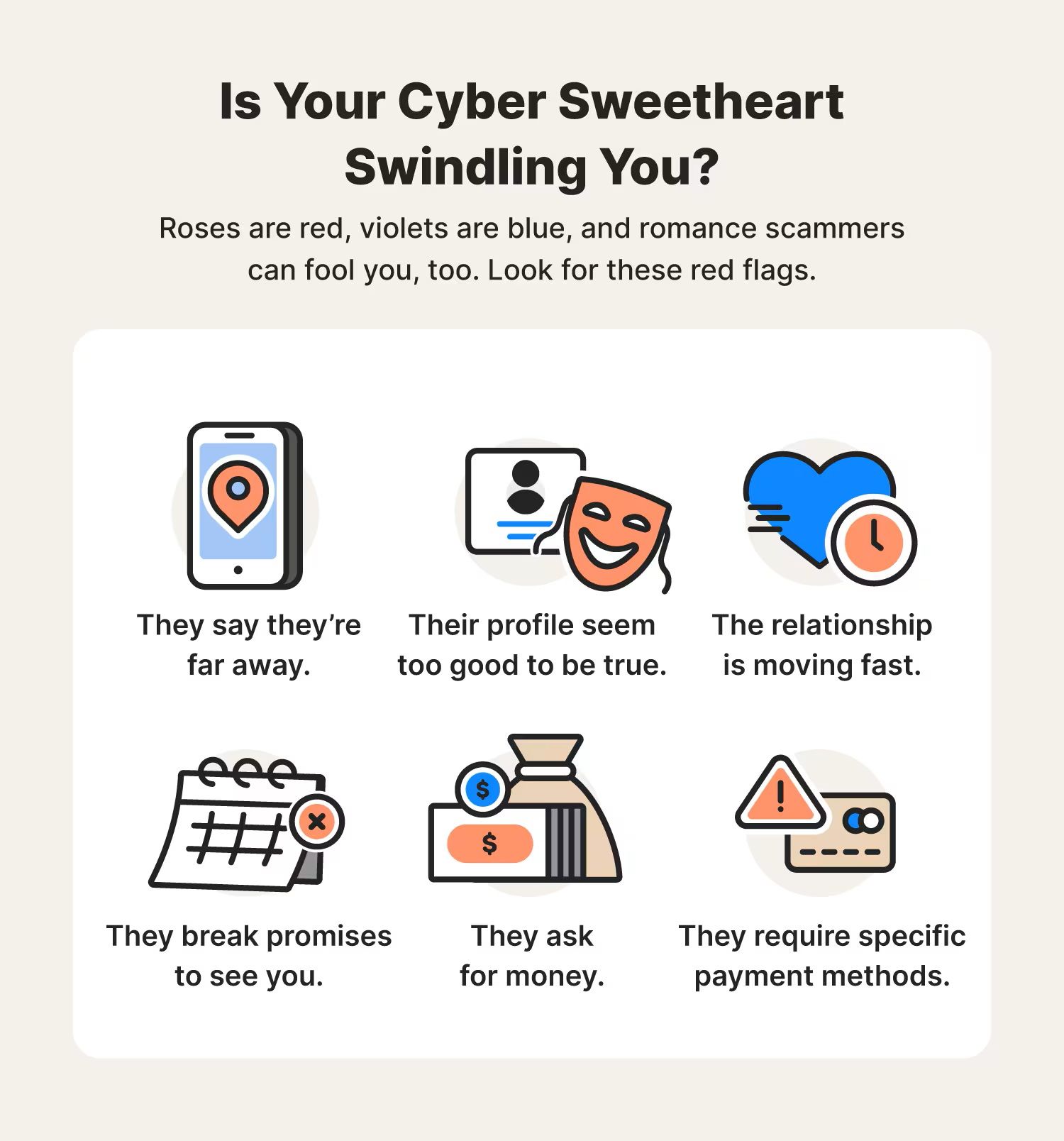
- Grandparent: a grandparent scam involves the scammer impersonating a loved one who is in trouble and needs money. These scams have become even more convincing in recent years due to artificial intelligence that can mimic anyone’s voice.
- Lottery/sweepstakes/inheritance: The victim is told they’ve won a prize or inherited a large sum of money, which they can only access if they pay taxes and fees upfront, or if they give up their identity and bank account information for direct deposit.
- Investment: Victims are asked to tap retirement accounts, home equity or credit cards, and put their money into low-risk investments with guaranteed returns. Investment scams often take the form of pyramid schemes, market manipulation or real estate investing. More recently, criminals have been using cryptocurrency for their investment scams, asking victims to purchase crypto, like Bitcoin or Ethereum, and transfer it to their digital wallet.
- Non-delivery: Fake advertisements entice people to order and pay for items online. They either never receive the order or get something completely different from what was advertised.
- Gift cards: Posing as a business or government agency, the scammer will request payment in gift cards, telling their victim to send them the numbers on the back of the cards. The scammer convinces the consumers to go to a nearby store (e.g., Walmart, Target, Walgreens, or CVS) to purchase a gift card. he scammer then directs the consumer to scratch off the security film on the back of the gift card and read out the numbers to the scammer. The scammer can then remotely access and retrieve the gift card’s value or, more commonly, the gift card information will, be sold and resold on a secondary market.
Often predators also target people who are seeking relief from financial stress. Below are a few common scams targeting people already experiencing financial strain.
Protect yourself before you’ve been scammed
Identity Theft Freeze Law
- This law allows anyone to contact the credit bureaus (Equifax, Experian, and TransUnion) and request a credit freeze…it’s FREE
- The freeze must be placed within 3 days after the request and within 10 days you will be provided a unique PIN
- You can temporarily life or “thaw’ your report for a specify amount of time
- We recommend this be done for anyone under the age of 18 or any senior citizen that has no need to open new credit
https://www.ag.state.mn.us/Consumer/Publications/CreditFreezesFraudAlerts.asp
Our Recent News
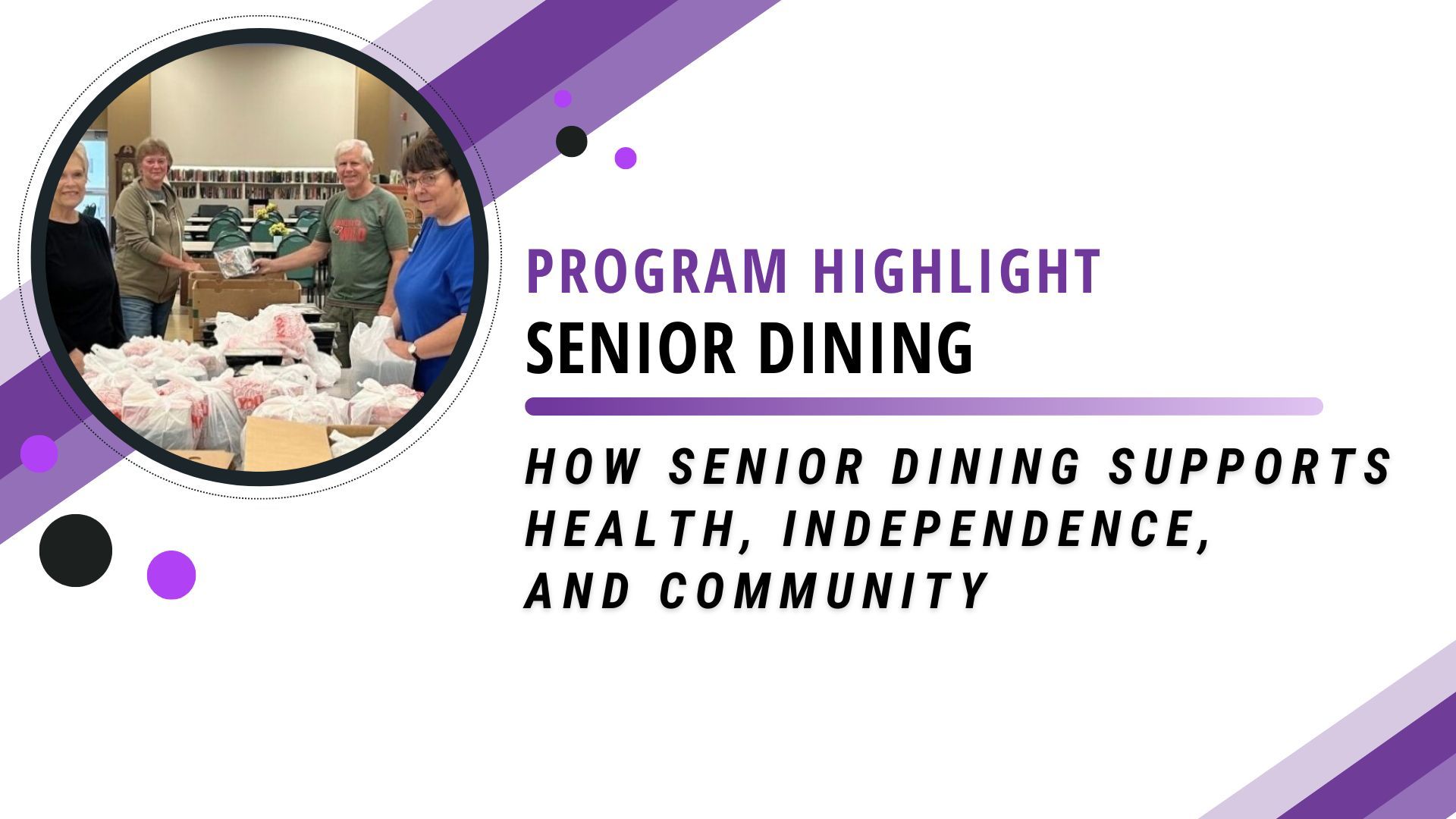
We are always honored to serve seniors like Gordon, whose story reminds us of the profound impact our Senior Dining program has on the lives of individuals in our community. Gordon, a widower of 58 years, currently lives with his son, but he continues to make the five-mile drive to the Senior Dining congregate site in Maple Lake every weekday. For Gordon, this is more than just a meal, it’s a chance to connect, stay healthy, and maintain his independence. "I can’t cook, and often I’m left eating Cheerios and coffee at night," Gordon shared. That’s where the Senior Dining program becomes so vital for him. The nutritious meals provided at Catholic Charities help him maintain a balanced diet and ensure he’s getting the nutrients he needs. While Gordon says, “You can’t please everyone all the time,” he enjoys the meals offered and values the healthy options available to him. But it’s not just about the food for Gordon. It’s the sense of community he experiences each day when he visits the Maple Lake site. Gordon enjoys visiting the other diners and the staff, who he calls "perfect" and insists they "do their jobs well." He appreciates the laughter, the warm welcome, and the connection with others that make each visit special. Catholic Charities Senior Dining Program serves seniors aged 60 and over, offering nutritious meals that help them stay healthy and independent. Whether it’s through congregate dining sites, or Meals on Wheels services, we are committed to providing seniors with the support they need to lead a healthy, independent life. Gordon is one of many seniors who rely on this program, and his continued dedication to attending every weekday demonstrates the importance of these services in maintaining his health and quality of life. He says he plans to keep coming as long as he’s able—a sentiment that reflects the value that Senior Dining brings to seniors in our community. We’re grateful for Gordon’s participation in our Senior Dining program and for the positive impact it has on his well-being. For Gordon and many others, it’s not just about the food, it’s about the connections, the care, and the opportunity to stay independent and healthy.
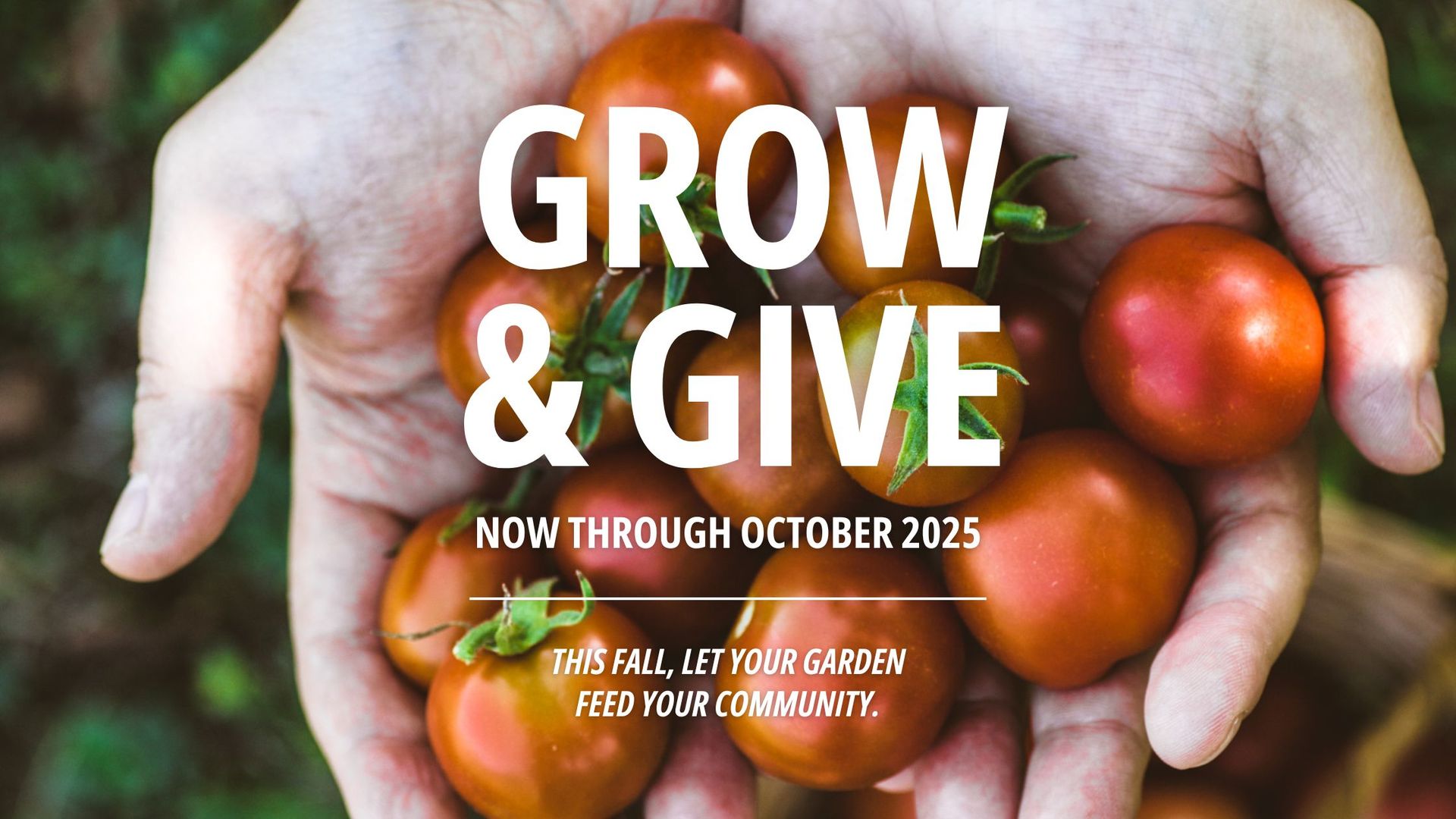
If your garden is overflowing this summer, you’re not alone—and that’s a good thing. Whether it’s tomatoes, cucumbers, zucchini, or beans, your extra produce can do more than fill your pantry. It can help feed families right here in our community. Catholic Charities of St. Cloud is hosting a Grow & Give donation event, running now through October 2025. The idea is simple: if you’re growing a garden, consider growing a little extra—or sharing what you won’t use—and donate it to Catholic Charities Food Shelf. Fresh fruits and vegetables are always in high demand, and your homegrown produce can make a real difference for neighbors facing food insecurity. How to Donate 📍 Drop-off Location: Catholic Charities Food Shelf 157 Roosevelt Road, Suite 100, St. Cloud, MN (Use Door D) 🕘 Donation Hours: Monday through Thursday: 9 am to 3 pm Friday: 9 am to 12 pm 🔔 Please ring the buzzer at Door D during donation hours. Staff or volunteers will meet you at the door to accept your donation. For food safety, donations must be handed directly to staff—please do not leave produce unattended or drop off outside posted hours.
